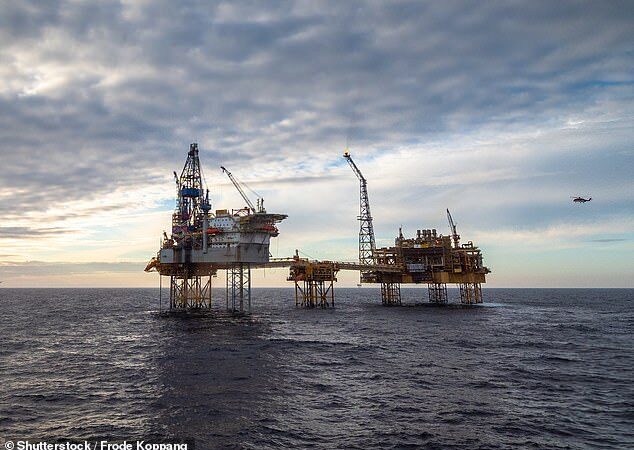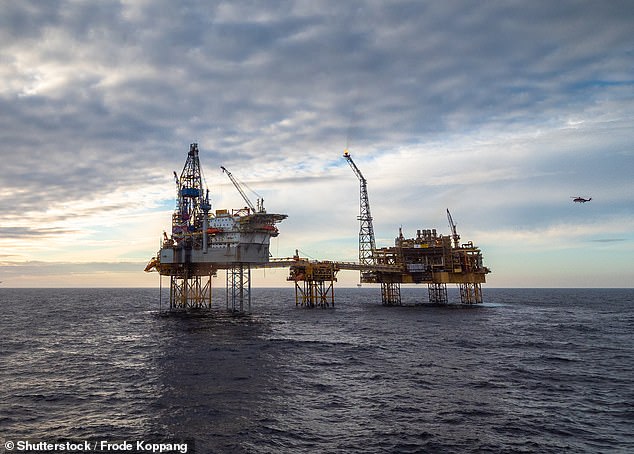
Remember the Green Investment Bank? Six years ago, the Tory government’s renewable energy project, including offshore windfarms, was sold to the infrastructure arm of Aussie vampire Macquarie for £2.3billion.
As the July 4 election looms, we now have Mark Two from Keir Starmer in the shape of Great British Energy (GBE) – Labour’s £8billion plan to transition the UK to net zero.
GB Energy, unveiled in Scotland where its headquarters will be located, is portrayed as Britain’s answer to Sweden’s Vattenfall and France’s EDF.
Good luck with that. It will be a fraction of the size of EDF, taken into full public ownership after it ran out of cash.
EDF is spending £34billion on the Hinkley super nuclear plant in Somerset alone. It is Europe’s biggest construction project and will be a great leap forward on Britain’s road to base load electricity supply and energy security. It is only possible because of Chinese financing and a pricing deal which will eventually mean higher utility bills for consumers.

In deep water: If Labour chooses to suspend new auctions for offshore exploration, it will undermine energy security
The prospect of GB Energy ever catching up with EDF is fantasy. As proposed, GBE will be doing some joint venture work in onshore wind, solar and tidal power and may unlock private sector cash. It will be a useful adjunct to the investment under way in offshore wind, nuclear and carbon capture by SSE, Centrica and others.
Labour says it will not revoke existing oil and gas licences. If it chooses, however, to suspend new auctions for offshore exploration, it will undermine energy security.
Together with the new taxes to be imposed on North Sea oil producers and removal of tax relief on exploration, it will stymie future investment. Scotland’s First Minister John Swinney describes the proposals as a ‘body blow’ for jobs in his nation. The headquarters for GB Energy will employ 50-100 people. It will be no compensation for thousands lost in engineering services in Aberdeen.
No one can afford to be complacent about climate change. However, the notion that fossil fuel industries are the devil incarnate is risible. In the US, big oil is doubling down on exploration. This week Chevron spent £42billion on Hess, thereby gaining control of new drilling rights in Guyana. Shell has cautioned that if the environment for big oil becomes inhospitable in Britain, it may move to the US. Fossil fuel investment is taking place in spite of Joe Biden spending up to £292billion to tackle climate change through the Inflation Reduction Act.
British climate zealots don’t appear to recognise that in an age of geopolitical fragmentation, the UK needs more energy security. The great inflation of 2022-23 was a direct consequence of Ukraine, and dealt a body blow to ordinary Britons.
Green activists are engaged in the equivalent of secondary picketing by hurting innocent third parties. Both the Hay and Edinburgh book festivals, two highly regarded literary events, have been placed in jeopardy by objections to sponsorship by asset manager Baillie Gifford. The Edinburgh-based firm controls £225billion of funds including the venerable Scottish Mortgage Investment Trust.
Some of the world’s biggest fund managers, including JP Morgan, State Street, Invesco and BlackRock, have stepped back from the Climate Action 100+ investor group in recent days. They say that while they recognise the ‘complexities and nuances’ of the green agenda, their priority must be providing security for investors.
Labour’s enthusiastic embrace of climate change is admirable. But it should not be forgotten that the resources being talked about are a fraction of the £24billion a year once promised. Setting up yet a new institution, when the already established Leeds-based Infrastructure Bank and British Business Bank could do much the same work, is an expensive duplicating bureaucracy.
Green investment should not be a case of either or. The North Sea (if not on-shore fracking) is a valuable stepping stone to energy transition and the footprint of natural gas could well be dramatically reduced by carbon capture.
BP, Shell and the other oil majors are already among the biggest UK investors in tackling climate change.
Driving them and other North Sea drillers and engineers out of future fossil fuels in Britain should not be an option.






